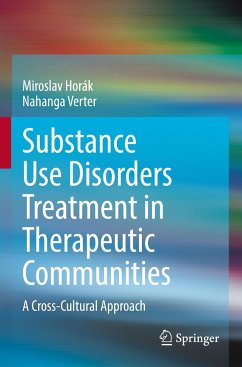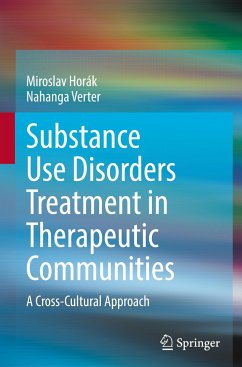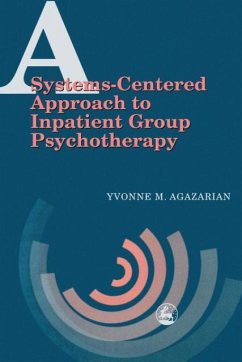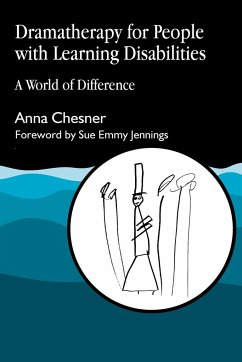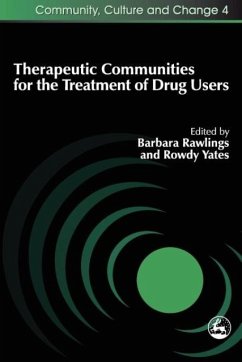
Therapeutic Communities for the Treatment of Drug Users
Versandkostenfrei!
Versandfertig in 1-2 Wochen
45,99 €
inkl. MwSt.

PAYBACK Punkte
23 °P sammeln!
Concept-based therapeutic communities emerged out of the informal group meetings of Charles Dederich and a number of former Alcoholics Anonymous members in California in the late 1950s. The model was exported worldwide and has not only become the most widely used approach to residential treatment but has proved enormously influential in the development of many other treatment approaches; both residential and ambulatory. Concept-based therapeutic communities are hierarchical, and the staff and residents form a chain of command. Staff are often qualified for their work by virtue of having been r...
Concept-based therapeutic communities emerged out of the informal group meetings of Charles Dederich and a number of former Alcoholics Anonymous members in California in the late 1950s. The model was exported worldwide and has not only become the most widely used approach to residential treatment but has proved enormously influential in the development of many other treatment approaches; both residential and ambulatory. Concept-based therapeutic communities are hierarchical, and the staff and residents form a chain of command. Staff are often qualified for their work by virtue of having been residents in such a community themselves. Like other types of therapeutic community, a central tenet of the approach is the emphasis on self help and the belief in the influence of the group dynamic in facilitating therapeutic interventions. Written by academics and practitioners from around the world, this is a comprehensive overview of the development of therapeutic communities and their benefits in the treatment of drug users. Contributors describe how the model operates in the community, and how it has been modified over time to fit different settings, different types of client and different referral requirements. Illustrated by descriptions of staff and client experiences, this book also provides an inside view of how this sort of therapeutic community actually operates. This authoritative study concludes by examining the research evidence for treatment effectiveness. It will be of interest to policy makers, managers and researchers in the field of drug abuse treatment.




